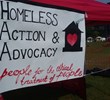
- Home
- News and Views
-
Spotlight on: Mental Health Support and Homelessness
Spotlight on: Mental Health Support and Homelessness
Spotlight on: Mental Health Support and Homelessness
At St Martin-in-the-Fields Charity we recently undertook a call for insights, asking people with personal and professional experience to tell us about challenges and good practice around access to mental health support for people experiencing homelessness. In this blog, we round up what we have learnt so far.
Background
Through our Annual Frontline Worker Survey we have consistently heard that there is a need to improve access to mental health support for people experiencing homelessness, in order to help people secure and keep a safe place to live. In 2022, 75% of frontline staff described accessing mental health support for people they worked with as ‘difficult’ or ‘very difficult’.
As a result, at St Martin’s Charity we have committed to learning more about this topic and offering a grant round making funding available to scale up work in this area. Details of the funding opportunity are currently live on our website here, and interested parties can apply before 5pm on Friday 17th February.
Thank you to everyone who took the time to share their knowledge and experience in response to our recent call for insights. Below you can find a summary of what we have heard and a list of resources we have found useful. We look forward to sharing further learning as we develop our work in this area.
What we’ve learnt about accessing mental health support so far
- What are the gaps in service provision for people experiencing homelessness accessing mental health support?
Key areas for improvement raised were:
- More outreach to connect with people.
- More preventative work and early intervention, to act before crisis.
- Addressing potential exclusion of people from mental health support due to co-existing struggles with addiction.
- Overcoming practical barriers to accessing support services (e.g. digital exclusion, lack of flexibility with attending appointments, language barriers, difficulty navigating the system, challenges due to lack of documentation).
- Improving capacity in services – currently insufficient resources and staffing contribute to long waiting lists and affect available support.
- Supporting staff with training – to learn about relevant topics (e.g. different mental health conditions, the types of support available, neurodivergence) as well as particular approaches (e.g. Psychologically Informed Environments, Trauma Informed Care).
- Need for greater partnership working to help achieve the above and avoid unnecessary delays and repetition.
“I've referred many clients for early intervention help and their cases aren't seen as 'bad enough' therefore don't meet the threshold.”
“There are exceptions where the service is accessible, responsive and engaged. Sadly these are generally exceptions.”
“In our experience a lot of time and energy is required in building a trusting relationship prior to any 'treatment' and this is not possible in mainstream services.”
- Are there particular access points / times when mental health support is most needed?
Points highlighted when mental health support was most needed included:
- Early intervention.
- Transition points - moving-in / moving-on from particular support or accommodation (e.g. leaving hospital, prison, local authority care, moving from child to adult services, or moving from homelessness to mainstream health services).
- Outside of healthcare settings (e.g. linking in with supported accommodation or the wider community).
- Flexible timings and out of hours (e.g. drop ins, evenings and weekends).
- All the time – timing will vary for different individuals but consistent and holistic support can help.
“Transition points are key - from the street to a hostel or assessment centre, to supported housing, to more permanent accommodation. It is often at these transitions when difficulties arise, and it is often here where services are withdrawn.”
“Often people are asked to move services and this requires people to build new relationships and retell their story. We often find people slip through the cracks here and return to services that they trust but from whom they may no longer be access a service.”
- Who do services struggle to engage and support and why?
People it was suggested services may struggle to engage and support included: people without a correct diagnosis, people experiencing multiple disadvantage, people with comorbidities, people with substance misuse issues, people with personality disorders, people with schizophrenia, people with neurodiversity, people with learning disabilities, people with a brain injury, and people with NRPF status.
Possible reasons why services struggled to engage and support these people included a lack of capacity, exclusionary criteria, lack of flexibility in approach and lack of awareness or specialist knowledge and skills.
“We have noticed that people who experience multiple forms of disadvantage are especially poorly served. This is most noticeable in co-occurring mental health and substance use […] We find that people with these co-occurring conditions are often poorly served as there is little agreement on what support falls under mental health and what requires a response from another sector. People’s lives don’t work like that.”
- What works to help people access mental health support?
The following practices were identified as helpful in enabling people to access mental health support:
- Varied and clear entry points to support – e.g. assertive outreach, embedding specialist workers and community-based services with a ‘no wrong door’ policy.
- Adequate capacity within services – enabling early, rapid, flexible and consistent support where needed and removing barriers to access.
- Commitment to relationships – listening, being non-judgemental if appointments are missed, taking time to build trust.
- Peer support – through staff members and volunteers, drawing on the knowledge and skills of people who have experienced homelessness and mental health support themselves, for example to help navigate services and advocate for individuals.
- Lived experience of homelessness and mental health support informing the design of services and training of colleagues.
- Partnership working between stakeholders – interdisciplinary teams sharing expertise and services working together to improve experiences of transitions.
- Particular models, with buy in at a senior level – e.g. Psychologically Informed Environments and Trauma Informed Care, strengths-based and person-centred approaches, an understanding of gender and culturally specific elements.
“Flexibility, time and space to build relationships, opportunity for face to face meetings, consistency of staff and care provision.”
“We would recommend wherever possible that there should be a single plan created in conjunction with people who are using services that delineates clear responsibilities across sectors and precludes the need for people to retell their stories and allows people to get the help they need as soon no matter who or when they ask for it.”
Lastly, the relationship between mental health and housing was reiterated here. A fundamental way of improving people’s mental health is ensuring that they have safe, suitable and sustainable accommodation and homelessness is prevented wherever possible.
- If good support was in place, what would markers of success be?
Suggested markers of good support included:
- People accessing support share positive feedback about services.
- More people are able to access meaningful support where needed.
- There are improvements to people’s quality of life (e.g. their personal goals around health, housing, relationships and work).
- Within services, staff are able to respond to individuals’ needs, suitable processes are in place to support this, the workforce is effective and stable, there is an empowering culture in the service and collaboration with other stakeholders.
- At a population level, more mental health issues are prevented from escalating (e.g. reduced contact with emergency services) and homelessness is minimised.
“We feel that if this type of system was implemented and working well then it would result in people being able to access support as and when they needed it without feeling like they are being passed about and at the mercy of meeting particular criteria. There would be no such thing as talking to the wrong person about how you are feeling – talk to who you trust about your feelings.”
“A good marker for success would be not allowing people to get to the point where they are breaking, early intervention can save lives once staff can recognise the signs and work intensively with people.”
Useful resources
Practical tools for frontline staff and people experiencing homelessness:
- Groundswell’s resource hub. In particular, their collaborative information leaflet created in partnership with Mind which provides tailored mental health information for people experiencing homelessness, and their short film Clarissa created to improve the health of people affected by homelessness, through better understanding of their experiences.
- Homeless Link’s guidance and resources on building effective relationships between mental health and homelessness professionals and supporting the mental health needs of people experiencing homelessness.
- Mind’s explanation of how housing and mental health can affect each other. Provides tips for coping and where to find support, and information on your legal rights.
Further insight into this topic:
- Centre for Homelessness Impact (January 2022) What works evidence notes: 06 Mental Health
- Fulfilling Lives LSL Research and Learning Partnership Groundswell, NPC and Sheffield Hallam University (2022) Research and Evaluation for Fulfilling Lives Lambeth, Southwark and Lewisham (LSL) – a project working with people facing multiple disadvantage
- Groundswell (November 2022) #HealthNow peer research report ‘Knowing where to turn’: access to mental health support whilst experiencing homelessness
- Homeless Link (October 2022) The Unhealthy State of Homelessness 2022: Findings from the Homeless Health Needs Audit
- MEAM (February 2019) The MEAM Approach
- MEAM (June 2022) Multiple disadvantage and co-occurring substance use and mental health conditions
- Mind (November 2017) Brick by Brick: A review of mental health and housing
- NICE Guideline (March 2022) Integrated health and social care for people experiencing homelessness
- Opportunity Nottingham (October 2019) Severe and Multiple Disadvantage in Nottingham: A summary document based on the Joint Strategic Needs Assessment for Nottingham City
- Pathway (July 2021) Kerslake Commission - Pathway submission paper
- Simon Community NI and Depaul (January 2023) Mental Health and Homelessness
If you would like to add to this list, please get in touch: frontline@stmartinscharity.org.uk.
News and Views
-

Pride Month 2025 – Pride Without Shelter: LGBTQIA+ Homelessness in Leeds
This Pride Month, Basis Yorkshire is calling for safer, more inclusive homelessness support for LGBTQIA+ people in Le...
-

Apply to Run a Justlife Testing Hub
Apply now to lead a Justlife local Testing Hub and help transform temporary accommodation into something shorter, saf...
-
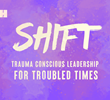
SHIFT: Trauma conscious leadership for troubled times
SHIFT is a free, 10-month leadership development programme launched by the Museum of Homelessness, offering trauma-co...
-

Wellbeing Programme for homelessness and supported housing sector workers
This four-part online training programme by Homeless Link equips frontline workers and managers with tools to enhance...
-

Mission Critical 03: Mission-Driven Partnerships with Civil Society
A new report was published today by The Future Governance Forum (FGF), with New Philanthropy Capital and The Lloyds B...
-

Call for Insights: Access to Accommodation
We're seeking knowledge and practical examples to better understand what prevents and enables people to access accomm...
-

Call for investment in preventing homelessness
We recently sent a letter to Rachel Reeves, Chancellor of the Exchequer, in collaboration with other charities across...
-

Training Fund: Guiding refugees through complex housing law
Amy from the Helen Bamber Foundation explains how the training fund has helped her feel more confident supporting sur...
-

Blog | Using The Training Fund to Understand The Impact Of The Renters Reform Bill
Alison is a Development Manager at The Bond Board, a charity that exists to reduce homelessness by getting people on...
-

New Fund | 'Incubating' Great Practice with Homeless Link
St Martin's Charity is supporting Homeless Link to deliver the new Homelessness Incubator Project, focusing on discov...
-

New Fund | Over £500,000 for mental health projects across UK
We are delighted to announce the award of three multi-year grants to projects working with people struggling with the...
-

Survey - Anti-Social Behaviour Powers and people experiencing homelessness
Frontline workers are invited to share their insights as part of a research study into the impact of anti-social beha...
-

Brain Injury Guidance
Leigh Andrews of Change Communication offered specialist advice on brain injuries and homelessness through a digital...
-

End Furniture Poverty Survey
End Furniture Poverty have recently spoken with the Frontline Network to discuss their important ongoing survey, seek...
-

Mental Health Support and hot food at The Soup Kitchen
Dr Brett Grellier discusses the launch of an innovative new project offering mental health support and hot food to in...
-

Youth Homeless North East annual Homeless survey
Youth Homeless North East is conducting its 8th annual Homeless Survey and asking that everyone related takes part.
-

Cover the Cost Campaign
Jasmine Basran, Senior Policy Officer at Crisis, talks to us about the Cover the Cost Campaign, asking the Government...
-

Developing a PIE Language at The Connection at St Martin’s in the Field
Rosie Allen-Jones, Client Involvement Coordinator at the Connection at St Martin's, talks to us about how the Connect...
-

The End of the Line – Migrant homelessness and what to do when there’s nothing left to do
Bethan Lant, Project Lead at Praxis, discusses support for those who are homeless and have exhausted their immigratio...
-

Delivering a European campaign to end street homelessness
Patrick Duce, Campaign Impact Manager at World Habitat, shares his learning from the European End Street Homelessness...
-

Access Denied: The cost of the 'no recourse to public funds' policy
Caz Hattam, Caseworker at the Unity Project, introduces their recent research into the 'no recourse to public funds'...
-

Survey to small charities and faith groups
Housing Justice and Homeless Link are working in partnership on a project reaching out and hearing directly from smal...
-

Rights & Entitlements for those with status under the EU Settlement Scheme
Praxis, the Frontline Network Partner facilitating the Pan-London Migrant Frontline Network, recently held an event l...
-

Exploring the new world: practical insights for funding, commissioning and managing in complexity
Dr Toby Lowe, Senior Lecturer in Public Management & Leadership at Newcastle Business School, introduces Exploring th...
-
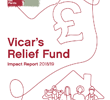
VRF Impact Report 2018/19
Over the past year we have given out 3827 grants totaling £1,156,805 through the VRF. Read the latest Impact Report t...
-

Influence from the Frontline
Frontline workers are crucial at giving insight into the viewpoints of the people they work with as well as the chall...
-
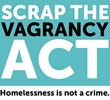
The Vagrancy Act
Crisis, along with others including Homeless Link, Cymorth Cymru, Centrepoint, St Mungo’s, Shelter Cymru and the Wall...
-

Save the date for the Annual Frontline Network Conference 2019
Our Annual Conference this year will take place on 20th June 2019 in London.
-

Influencing local decisions
Zoe, Frontline Network Coordinator at Coventry Citizens Advice, talks to us about the Coventry Frontline Network and...
-

The Litigant in Person Network
Martha de la Roche, Network Development Manager at Litigant in Person Network (LiP Network), tells us about The LiP N...
-

Help us tell the real story of homeless people's deaths
Maeve McClenaghan is an investigative journalist working on a year-long project trying to log when and how people are...
-
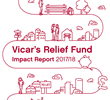
VRF Impact Report
Find out what impact VRF had last year and how to get involved in shaping its direction in the coming year.
-

Housing First Scotland
Please see here for the first issue of Housing First Connect - a twice-yearly newsletter for Scotland’s new Housing F...
-

Supporting Transitions with Fulfilling Lives
Fulfilling Lives Newcastle Gateshead (FLNG) provide an update on the funding they received through the ideas board.
-

Developing an Understanding of Brain Injury
Find out more about the range of resources that can help frontline staff where they suspect Acquired Brain Injury (AB...
-

Changing the system for people experiencing hidden homelessness
Ellie Radcliffe, Network Development Officer for Justlife, talks to us about creating the Unsupported Temporary Accom...
-
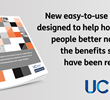
DWP release resources to help support homeless claimants with UC
Last week the DWP launched two guides to help homeless claimants with UC. One for people themselves and one for suppo...
-

New resources on Universal Credit launched for frontline workers
Homeless Link have recently launched three new briefings for frontline workers supporting people with making claims f...
-

Home Comfort: furnishing homes for vulnerable people in Huddersfield
In June 2017, Huddersfield Mission came to the Ideas Board with a simple idea: to provide basic home furnishing packs...
-

Access to healthcare for Migrants
Bethan Lant, Casework Manager at Praxis Community Projects, talks to us about access to healthcare for Migrants.
-

Engaging with decision makers in South Yorkshire
Sirea Jabar is the Partnership and Training Officer for Target Housing in South Yorkshire and is partner representati...
-

Highlights from a visit to Cyrenians
Joe Baldock, engagement worker at Justlife Brighton, talks about his visit to Cyrenians and engaging with the Scottis...
-

The National Audit Office comment on Universal Credit
Find out more from the NAO and their report on Universal Credit.
-

Brexit: Supporting Vulnerable Europeans
Lidia Estevez Picon, Migration Policy and Services Coordinator at the Connection at St Martin's, talks about how you...
-

CPAG - Early Warning System
Dan Norris, from CPAG, talks to us about a new Early Warning System to record the impact of benefit changes implement...
-

What about me? Recognising and supporting children with a mother in prison
Hear from Sarah Beresford, a Prison Reform Trust Associate and author of the What about me? report.
-

Calls from the Frontline to end homelessness in Scotland
Maggie Brunjes, Director of Glasgow Homelessness Network (GHN) provides an update on the work of the Scottish Governm...
-

An initiative to tackle health inequalities for people who are homeless
Dr Zahid Chauhan talks to us about setting up new initiative Homeless-Friendly.
-

Changing Lives Shadowing Mayday in Oxford
Adam Orr and Lyndsay Sholder from Changing Lives shadowed Mayday Trust in Oxford on 30/01/18 in order to learn and di...
-

Moving on from temporary accommodation
Ellie McLaren from Changing Lives writes about a recent Be the Change Frontline Network event which looked at moving...
-

Frontline Network Conference 2018: Wellbeing on the Frontline
Book now for our Frontline Network Conference 2018: Wellbeing on the Frontline, which will be held in Central London...
-

Vicar's Relief Fund (VRF) Arrears Survey
We want to hear from you if you support people with arrears that affect their housing situation - please complete our...
-

The Hostile Environment
Bethan Lant, a Project lead from Praxis, writes about the creation of a hostile environment for migrants and refugees.
-

Universal Credit: Effects on frontline services and clients
Sinead Kelleher from ARCH blogs about an event in Wrexham held to highlight the effects of the rollout of Universal C...
-

Be the Change Frontline Network explores Universal Credit
Peff Soulsby from Changing Lives writes about a recent Be the Change Frontline Network event which explored the thorn...
-

Vicar's Relief Fund (VRF) Grants Survey
We are seeking feedback on our VRF grants - please complete our short survey and tell us what you think.
-

Wrexham’s Crisis Cafe
Sinead Kelleher writes about Wrexham's Crisis Cafe, a multi-agency response to Universal Credit.
-

The Unspoken Truth About Frontline
Anna Suswillo, a former Asset Coach for Mayday, shares the unspoken truth about working on the frontline and her expe...
-

Homeless Link: Transatlantic Practice Exchange 2018
This is an exciting opportunity for frontline homelessness staff to spend a fortnight in the United States, exploring...
-

Frontline Worker Survey
We are asking frontline workers to participate in a survey, aimed at those working with clients who are experiencing...
-

Frontline Network Conference
Save the Date! The Frontline Network Conference will be held on Thursday 7 June 2018 in Central London.
-

Wellbeing on the Frontline Conference: Have your say!
We are planning our "Wellbeing on the Frontline" Conference for 2018 and we need your input to ensure the event is of...
-

Vicar's Relief Fund (VRF) Volunteers Wanted
The Vicar's Relief Fund (VRF) team are looking for VRF volunteers to support them with general office and administrat...
-

A Day in the Life of ... Hamoaze House
Jane Cookson, Path's Frontline Network Co-ordinator, spends a day with Plymouth's Hamoaze House, which provides help...
-

Reflections on Psychologically Informed Environments (PIE)
Harriet Morris, from Justlife Brighton, reflects on what she learnt from a recent Frontline Network event focusing on...
-

Personal Transitions Service (PTS): An asset based model
Mayday Trust's Paddy Bates writes on the Personal Transitions Service (PTS), the first strength based model for peopl...
-

Vicar's Relief Fund (VRF) partners with Glasspool
St Martin-in-the-Fields Charity is partnering with Glasspool Charity Trust, to launch a 1 month pilot to provide hous...
-

Top Tips for organising a successful local event
Target Housing's Sirea Jabar shares her top tips on organising a successful local event, based on her own experience...
-

The Value of Reflective Practice
Mike Wright from Cyrenians attended the Tackling Multiple Disadvantage: 2nd National Summit and shares some of his le...
-

Rural rough sleeping is on the rise
Charlotte Snelling, Research Fellow at the IPPR, writes about the rise in rural rough sleeping
-

The Frontline Network is looking for new Steering Group members
The Frontline Network needs YOU! We are looking for 3 frontline workers to join our Steering Group
-

Introducing our new Frontline Network Partner Organisations
The Frontline Network introduces its 10 new Partner Organisations for 2017-2019.
-

Winston Churchill Memorial Trust Travelling Fellowships
The Winston Churchill Memorial Trust are offering funded Travelling Fellowships to individuals working in the housing...
-

A Year in the Life of the Frontline Network
David Barclay reflects back on his year spent working on, and developing, the Frontline Network.
-

Vicar's Relief Fund (VRF) ID pilot has been extended
We have extended the Vicar's Relief Fund (VRF) ID pilot
-

A map through conflict
A Cyrenians Mediator writes about their innovative Amber Mediation and Support Project, a model of mediation and supp...
-

The Frontline Network celebrates its first birthday and launches an Events Fund
The Frontline Network celebrates its first birthday and launches an Events Fund
-

“A place to call home"
Hannah Gousy was seconded from Crisis to the Centre for Social Justice (CSJ) to help design policy recommendations to...
-

“I’m not going to order a chest X-Ray based on his social situation”
Susan Rutherford is a medical student who set up a homeless shelter in Leamington Spa. She explains why homeless heal...
-

VRF launches 3 month pilot funding ID
We have set up a 3 month pilot through the Vicar's Relief Fund (VRF) of funding ID where someone is currently homeles...
-
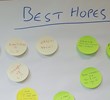
The Care Act and homeless/ vulnerably housed clients
We hear from Alex Smith, System Broker at Fulfilling Lives Newcastle Gateshead, about the latest frontline event disc...
-

The Frontline Network joins forces with Turn2us to provide tools on benefits and grants
The Frontline Network has launched an exciting new partnership with Turn2us to give frontline workers access to their...
-

Five questions on working with undocumented migrants
Bethan Lant, project lead for the advice team at Praxis Community Projects, answers five questions about working with...
-

Helping people who are homeless into GP practices
Jane Cook, Clinical Lead for Healthy London Partnership’s London Homeless Health Programme, tells us about the work b...
-

Indelible Stains? How one homelessness charity is turning criminal records from a problem into an asset
Cyrenians promote an approach where lived experience of struggles is valuable, both to those with whom they work and...
-

How the Pan-London Housing reciprocal prevents survivors of domestic abuse from becoming homeless
Safer London is centrally coordinating a new Pan London Housing Reciprocal which is a framework to help survivors to...
-

Five things to consider when working with homeless migrants
Chloe Robinson is an immigration advisor with Praxis Community Projects on the Routes Home project. She spoke to Prax...
-

A London Nightshelter
On 7 November we opened our church-based shelters for the winter with more churches signed on then ever before. Glass...
-

Barry tells how lived experience shapes his work
Barry is a recovering alcoholic and now works in frontline services as a Support Worker for national charity Changing...
-

'Step Up' at The Connection
Wyn Newman introduces the volunteer programme 'Step Up' that has been developed at The Connection for service users.
-

Scarborough - Client and Agency Meet Up
Trish Kinsella, from the Rainbow Centre in Scarborough, talks about getting clients and services together for breakfast.
-
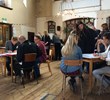
Brighton and Hove Frontline Network Up and Running!
Simon Gale, Operations Manager for Justlife Brighton, talks about the inaugural St Martin’s Frontline Network gatheri...

